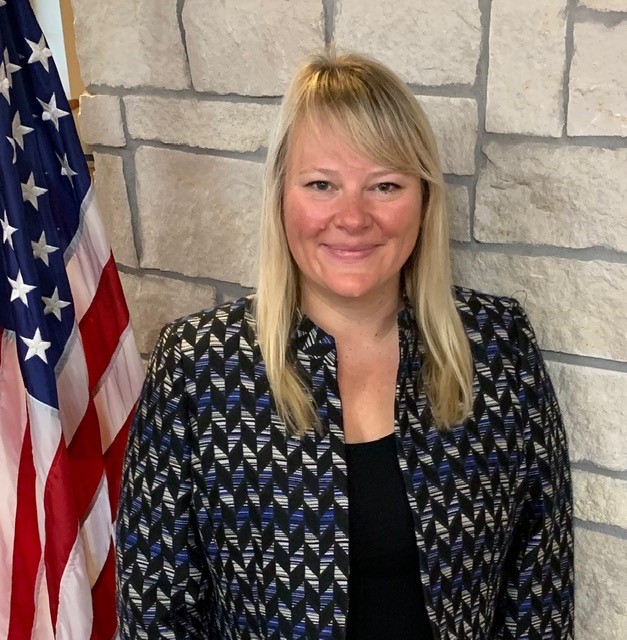Why Veterans Are In-Demand Employees

Is your son or daughter thinking about enlisting in the military after high school? As the senior transitions manager for the USO Pathfinder Program, a nonprofit organization to help service members make the shift from military service to the civilian workforce, my job is to give them the tools and resources to become successful employees after their service ends.
In my time with the USO, I’ve learned firsthand why veterans make such valuable additions to any team. As a parent myself, I’d like to share five reasons why the armed services would be a wonderful path for your son or daughter to pursue after high school to launch their successful career.
1. The military provides specialized skills training for all service members according to their military occupational specialty (MOS). Not only do military members receive specialized training in their MOS, but they also receive ongoing tactical, technical and physical training, as well as leadership development. These programs help service members develop skills for not only their military career, but beyond. The Army alone has more than 190 specialties, which range from careers directly related to weapons and defense to careers that support their fellow soldiers, such as:
- Aviation (mechanic, avionics technician, pilots)
- Corp of Engineers (engineer, natural resource specialist)
- Cyber operations specialist (data manager, IT networking)
- Financial management (accountant, bookkeeper)
- Mechanical maintenance (automotive, heavy machine mechanics)
- Medical (pharmacists, physicians, nurses, medics, dental assistants, veterinarians)
- Native language speaker (interpreter/translator)
- Transportation (drivers, logistics)
2. Veterans understand the importance of teamwork. As you’ve heard, there is no “I” in “TEAM” and the military drives this point home with each service member. Veterans tend to be very humble and rarely play up their own role in their achievements, but instead they emphasize the work of their entire team. When coaching service members transitioning to civilian life, sometimes I have to help them articulate their own personal involvement in missions, because hiring managers want to know what the individual did for their past employers, not what their whole unit did. However, once this person joins your team, this “team-first” philosophy will be a very valuable mindset to add to your workplace. Who doesn’t want an employee who’s focused on the success of every part of your operation?
3. Military members learn to be nimble, flexible and adaptable to any situation that might arise. Our members’ lives are full of constant change — whether that’s moving every two to three years, being called to action at a moment’s notice or changing course during a mission due to an enemy’s threat. Our service members are incredibly adaptable and can adjust and remain focused on the mission, whatever the obstacle ahead might be.
4. Military members serve in one of the — if not THE — most diverse and inclusive workplaces in the world and are comfortable with people of all races, ethnicities and backgrounds. The average US citizen might not know that we have people enlist into our military from other nations because they believe in the values that our country was founded on and hold so dear. The US military consists of people from all over the world, who look different from one another, speak a variety of languages and come from completely different cultures and religions, yet all have one thing in common: They raised their right hands and took an oath to defend this great nation. That oath has no expiration date and each person who has taken it has pledged themselves to protect the fundamental framework of our country.
5. Service members are resilient. Veterans possess the ability to overcome challenges — whether it be trauma, tragedy, professional setbacks, challenges or failures. They learn to bounce back stronger, wiser and more confident. Military members face your typical civilian challenges (such as being a working parent or having to care for an elderly family member), compounded by additional military challenges (such as separation from loved ones during important life events or taxing physical tests and field exercises). While we all face challenges in our jobs, military service members must regularly overcome such hurdles and remain reliable contributors to their unit, making them some of the most resilient workers in the world.
In addition to the skills and qualities military members learn through their service, enlisting in any branch of the armed forces is a great way to get education paid for — and that holds true for technical training as well as associate, bachelor’s or post-graduate degrees. While they’re in school, service members can use military tuition assistance (up to $4,500 per fiscal year) to cover tuition and fees. After separation from the military, veterans can use the GI Bill that offers tuition (up to $36,000) or the Forever 9/11 Bill that offers tuition and a housing allowance for those who choose it instead of the GI bill. Read more to learn how to qualify and the differences between the two.
The men and women who wear the cloth of our nation are TOP talent candidates for any position. Not only are our veterans highly trained, they have the much-needed essential skills that companies seek. If your child is looking for a way to see the world, pay for additional schooling, gain hands-on professional experience or launch an in-demand career, starting their post-high school lives through military service can be a great first step.

Crystal Bryant-Kearns began her career in teaching in Tennessee, where she was born and raised, but currently serves as the Senior Operations Manager for the USO Transitions Pathfinder Program. In this role, she is responsible for building regional and national partnership networks in support of transitioning service members and military spouses. Though the program supports service members globally, her office is located at Fort Riley, Kansas, the home of the 1st Infantry Division.



